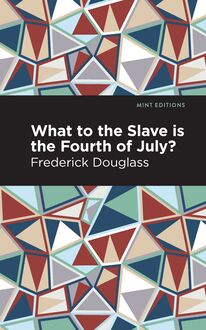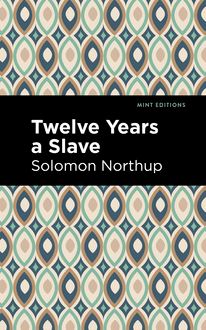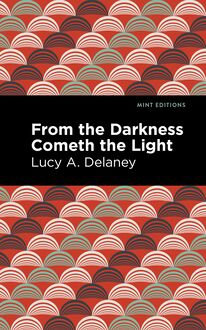-
 Univers
Univers
-
 Ebooks
Ebooks
-
 Livres audio
Livres audio
-
 Presse
Presse
-
 Podcasts
Podcasts
-
 BD
BD
-
 Documents
Documents
-
- Cours
- Révisions
- Ressources pédagogiques
- Sciences de l’éducation
- Manuels scolaires
- Langues
- Travaux de classe
- Annales de BEP
- Etudes supérieures
- Maternelle et primaire
- Fiches de lecture
- Orientation scolaire
- Méthodologie
- Corrigés de devoir
- Annales d’examens et concours
- Annales du bac
- Annales du brevet
- Rapports de stage
La lecture à portée de main
Vous pourrez modifier la taille du texte de cet ouvrage
Découvre YouScribe en t'inscrivant gratuitement
Je m'inscrisDécouvre YouScribe en t'inscrivant gratuitement
Je m'inscrisEn savoir plus
Vous pourrez modifier la taille du texte de cet ouvrage
En savoir plus

Description
Nancy Prince is an African American woman who writes about her personal and professional life, including her marriage and travels abroad to Russia and Jamaica. It’s a vivid account of the events that would shape her business and legacy. Little is known about Nancy Prince’s early years. She was born in Massachusetts to a seaman and mother who remarried multiple times. Despite an unstable homelife, Nancy helped to support the family any way she could. She worked as a servant before marrying Nero Prince, a foot soldier and cofounder of the Prince Hall Freemasons. They eventually moved overseas where Nero held multiple positions in the Russian Courts. Nancy became a successful businesswoman, establishing a boarding school, giving lecturers and working as a seamstress. A Narrative of the Life and Travels of Mrs. Nancy Prince explores the author’s unconventional path to success. She surpassed expectations to become a respected figure among her peers. As an entrepreneur, she provided a vital service and opportunities to those who needed them most. With an eye-catching new cover, and professionally typeset manuscript, this edition of A Narrative of the Life and Travels of Mrs. Nancy Prince is both modern and readable.
Sujets
Informations
| Publié par | Mint Editions |
| Date de parution | 21 mai 2021 |
| Nombre de lectures | 0 |
| EAN13 | 9781513279107 |
| Langue | English |
| Poids de l'ouvrage | 2 Mo |
Informations légales : prix de location à la page 0,0300€. Cette information est donnée uniquement à titre indicatif conformément à la législation en vigueur.
Extrait
A Narrative of the Life and Travels of Mrs. Nancy Prince
Nancy Prince
A Narrative of the Life and Travels of Mrs. Nancy Prince was first published in 1850.
This edition published by Mint Editions 2020.
ISBN 9781513278643 | E-ISBN 9781513279107
Published by Mint Editions®
minteditionbooks.com
Publishing Director: Jennifer Newens
Design & Production: Rachel Lopez Metzger
Project Manager: Micaela Clark
Typesetting: Westchester Publishing Services
C ONTENTS N ARRATIVE W EST I NDIES D IVINE C ONTENTMENT T HE H IDING P LACE
N ARRATIVE
As my unprofitable life has been spared, and I have been, by the providence of God, wonderfully preserved, it is with gratitude to my Heavenly Father, and duty to myself, that I attempt to give to the public a short narrative of my life and travels.
I was born in Newburyport, in 1799. My mother was the daughter of Tobias Wornton, who was stolen from Africa, when a lad, and was a slave of Capt. Winthrop Sargent; and, although a slave, he fought for liberty, and was in the Revolutionary army at the battle of Bunker Hill. My grandmother was an Indian. My father, Thomas Gardener, was born on Nantucket; his parents were of African descent, and he died of bleeding at the lungs, leaving my mother a widow the second time, with an infant in her arms. She then returned to Gloucester, her native place. My mother soon married again her third husband, by whom she had six children. My step-father was stolen from Africa, and while the vessel was at anchor in one of the Eastern ports, he succeeded in making his escape from his captors by swimming ashore. After a lapse of two years he came to Gloucester, and followed the sea, and was twelve years with Capt. Elias Davis, in the employ of Capt. Fitz W. Sargent. During the war he was taken by a British Privateer, and pressed into their service. He was sick with the dropsy a long while, and died in 1813. My mother was again left a widow, with an infant six weeks old. When she heard of her husband’s death, she replied, “I thought it; what shall I do with these children?” Her grief, poverty, and responsibilities, were too much for her; she never was the mother that she had been before. I was at this time in Capt. Sargent’s family. I shall never forget the feelings I experienced on hearing of the decease of my father-in-law; he was never very kind to the first set of children. But by industry, a humble home was provided for my mother and younger children. Death had twice visited our family within three months, my father having buried my grandfather before he sailed. I thought I would go home a little while, and try to comfort my mother. The three oldest children were put into families. My brother and myself went out of town, in one family, where we staid until the war was over. We often went home with our wages, and all the comforts we could get; but we could not approach our mother as we wished. God in mercy took one little brother of seven years, who had pined in consumption; thus our family was scattered. I determined to get more for my labor, and I left Essex and went to Salem, in 1814, to service in a family. I had always enjoyed the happy privilege of religious instruction. My dear grandfather was a member of a Congregational Church, and a good man; he always attended church in the morning, and took us with him; and in the afternoon he took care of the smaller children, while my mother attended with her little group. He thought it wrong for us to go to a school where the teacher was not devoted to God, for I early knew the difference between right and wrong. They had family prayers morning and evening. I often looked at them, and thought to myself, “Is this your religion?” I did not wonder that the girl who had lived there previous to myself, went home to die. There were seven in the family; two of them being sick, one with a fever and the other in a consumption, of course the work must have been very severe, especially the washing. Sabbath evening I had to prepare for the wash. I was then but fourteen years of age, and a stranger. I was called up at two o’clock in the morning, and what embittered my heavy task, I was not spoken kindly to, but was blamed for being slow, and for not performing my work well. Hard labor and unkindness were too much for me, and in three months my health and strength were gone. I went home to Gloucester in their chaise. I found my mother in poor health, but through the mercy of God, and the attention and skill of Dr. Dale, and the kindness of friends, I was restored, so that in a few months I was able again to go to work, although my side afflicted me, which I attributed to over-working myself.
In 1815 I returned to Salem, accompanied by my eldest sister, and obtained good places. She afterwards returned to Boston as a nursery girl, where she lived a few months, and was deluded away on February 7th of 1815. A friend came to Salem and informed me of it. Her death would not have been so painful to me. We loved each other very much, and more particularly as our step-father was not very kind to us; we used to say as soon as we were large enough we would go away, as we did. It was very cold, but notwithstanding, I was so distressed about my sister, that I started on foot the next morning after I heard of it. At Lynn Hotel we refreshed ourselves, and all seemed much interested about me. Two women took me aside, and inquired how it was I was with that woman. I told my reason. My companion had a little son of hers in her arms. By the time we were seven miles from Salem, cold and fatigued, I could walk no farther, and we hired a horse and sleigh, and a man to drive us to Boston, where we arrived at seven in the evening. I put up with a friend of mine, who lived in Bedford street, who received me very kindly. My feet, hands, and ears, were all frost-bitten. I needed all the hospitality that was extended to me. I was young and inexperienced, but my object was hallowed. God chooses in his wisdom the weak things of earth; without his aid how could I ever have rescued my lost sister! Mr. Brown, when he learned my errand, kindly offered to assist me. He found where my sister resided, and taking with him a large cane, he accompanied me to the house. My sister I found seated, with a number of others, round a fire, the mother of harlots at the head. My sister did not see me until I clasped her round the neck. The old woman flew at me, and bid me take my hands off of her. Mr. Brown defended me with his cane from her attacks. There were many men as well as girls there, and all was confusion. When my sister came to herself, she looked upon me. I said, “Sylvia, my dear sister, what are you here for? Will you go with me?” The enraged old woman cried out, “No, she cannot go.” Sylvia replied, “I will go.” Then followed a scene. The old woman seized her to drag her down into the kitchen; I held on to her, while Mr. Brown, at my side, so used his great cane, and so threatened her, that she was obliged to let her go; and, after collecting her things, she left the house with Mr. Brown and myself.
The next day we started for Salem, and went to the stage-office; we expected Mr. Low, the driver of the Gloucester stage, who knew us as his towns-people, would let us take passage with him without any difficulty; but he refused, unless we would ride upon the top. It was very cold, and we had never rode in that way; his inhumanity grieves me even now. I had sent my mother my wages the week before, and what money I had, I had taken in advance of my employers. We were greatly embarrassed, when a colored man, unknown to us, penetrated our difficulties, and asked us if we had two dollars; we told him we had; he very kindly took us to another stage-office, and we bargained for a horse and sleigh to take us to Salem, where we arrived safely in about two hours and a half; and we gave up our conveyance to the same owners, with ten thousand thanks to our colored friend, and to our Heavenly Father; for had we attempted to walk, we must have frozen by the way. The lady I lived with (Mrs. John Deland,) received us very kindly, and permitted my sister to remain with me awhile; then she returned to Gloucester, to the family who brought her up, and I thought we had gained a great victory.
My brother George and myself were very desirous of making our mother comfortable; he went to sea for that purpose. The next April I came to Boston, to get a higher price for my labor, for we had agreed to maintain our mother, and we hoped she would take our little brother, who was supported by the town, and take care of him. George came home, and sailed again in the same vessel, leaving her a drawbill of half of his wages. My sister returned to Boston to find me, and wished to procure a place to work out. She tried me much. I thought it a needy time, for I had not yielded my heart to the will of God, though I had many impressions, and formed many resolutions; but the situation that I had been placed in, having left my mother’s home at the age of eight, had not permitted me to do as I wished, though the kind counsels of my dear grandfather and pious teachers followed me wherever I went. Care after care oppressed me; my mother wandered about like a Jew; the young children who were in families were dissatisfied; all hope but in God was lost. I then resolved in my mind to seek an interest in my Saviour, and put my trust in him. For that purpose I changed my place for one more retired, got my sister with me, and then God blessed my soul; being justified by faith, I found peace with God, even the forgiveness of sins, through Jesus Christ. After living sixteen years and five months without any hope, myself and seven others were baptized, in obedience to the great command.
My brother George returned home, and we again provided a home for mother and the little ones; he went to sea, and affairs now seemed to promise comfort and respectability. But mother chose to m
-
 Univers
Univers
-
 Ebooks
Ebooks
-
 Livres audio
Livres audio
-
 Presse
Presse
-
 Podcasts
Podcasts
-
 BD
BD
-
 Documents
Documents
-
Jeunesse
-
Littérature
-
Ressources professionnelles
-
Santé et bien-être
-
Savoirs
-
Education
-
Loisirs et hobbies
-
Art, musique et cinéma
-
Actualité et débat de société
-
Jeunesse
-
Littérature
-
Ressources professionnelles
-
Santé et bien-être
-
Savoirs
-
Education
-
Loisirs et hobbies
-
Art, musique et cinéma
-
Actualité et débat de société
-
Actualités
-
Lifestyle
-
Presse jeunesse
-
Presse professionnelle
-
Pratique
-
Presse sportive
-
Presse internationale
-
Culture & Médias
-
Action et Aventures
-
Science-fiction et Fantasy
-
Société
-
Jeunesse
-
Littérature
-
Ressources professionnelles
-
Santé et bien-être
-
Savoirs
-
Education
-
Loisirs et hobbies
-
Art, musique et cinéma
-
Actualité et débat de société
- Cours
- Révisions
- Ressources pédagogiques
- Sciences de l’éducation
- Manuels scolaires
- Langues
- Travaux de classe
- Annales de BEP
- Etudes supérieures
- Maternelle et primaire
- Fiches de lecture
- Orientation scolaire
- Méthodologie
- Corrigés de devoir
- Annales d’examens et concours
- Annales du bac
- Annales du brevet
- Rapports de stage




















